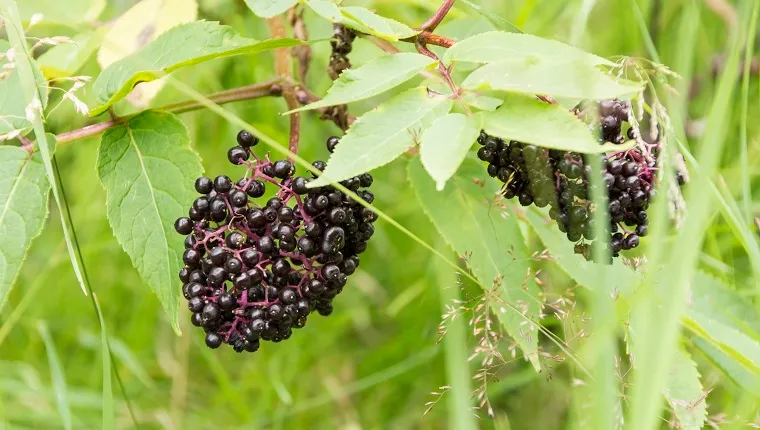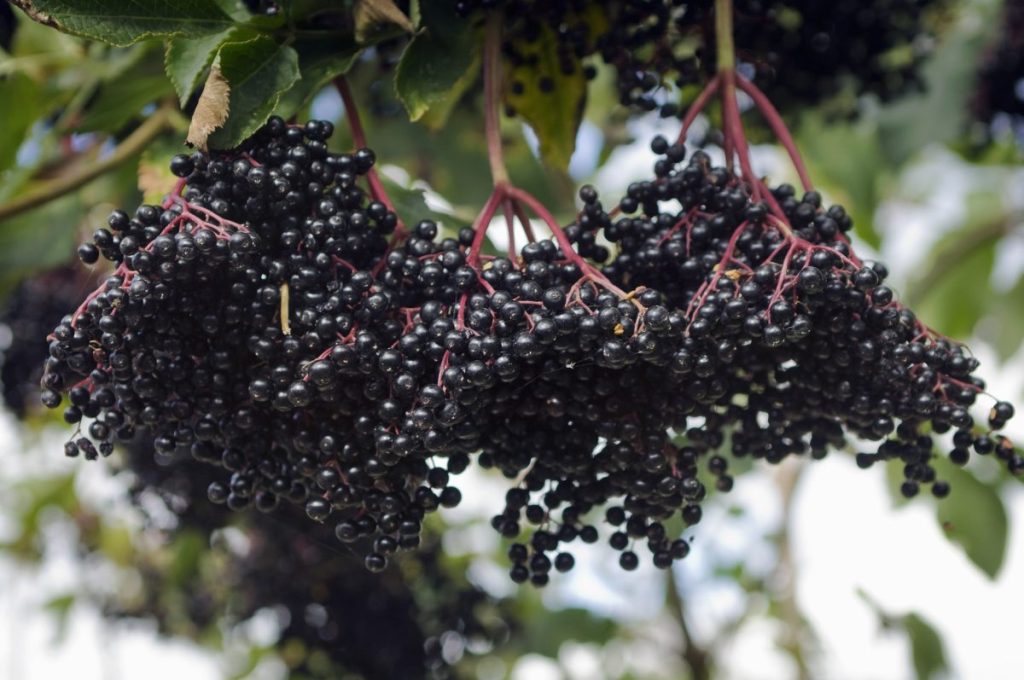Elderberries have become quite popular amongst us humans for jams, syrups, and desserts, but can dogs eat elderberries? Often found in public parks, campgrounds, and on hiking trails, elderberry shrubs are difficult to avoid, much like chokeberry shrubs. Are they safe for our dogs?
Unfortunately, the short answer is no; elderberries are not safe for dogs to consume. However, there is a bit of an exception, which can confuse dog parents on the topic of elderberries.
Perfectly ripe elderberries are safe and nutritious for both dogs and humans. But there are two issues. Out in the wild, neither you nor your dog is really going to know the difference, and properly preparing ripe elderberries for consumption is a bit of a chore.
Overall, the cyanide content of elderberries, including their stems, leaves, and seeds, makes them far too difficult and dangerous to be a dog treat. But, as always, discuss this matter with your veterinarian to get the straight facts. Here’s what you should know.
Why Are Elderberries Bad for Dogs?
Honestly, without very specific kinds of preparation, elderberries are even bad for humans. They are used to produce wine, jellies, syrups, and desserts.
Chances are, if you’re a foodie, you’ve crossed paths with the elderberry in your travels. But in all of those cases, the berry is properly ripened and fermented, with their benefit carefully extracted.
Unripened elderberries, as well as the leaves, stems, and seeds of the shrub, contain amygdalin. This is a cyanogenic glycoside that produces hydrogen cyanide upon entering the digestive tract. Basically, consuming this berry turns it into a time bomb.
Fatality may occur within an hour of improper ingestion, from even seemingly small amounts. In general, if cyanide poisoning occurs, it almost always results in death.
What Should I Do If My Dog Ate Elderberries?

If you believe that your dog has consumed elderberries, it would be unwise to self-determine if the berries are ripe or not. Treat the consumption as an emergency and seek veterinary care.
Ideally, it would be further helpful to write down a description or bring in a sample of the berry consumed. Different kinds of elderberries exist, and any information you can provide your vet may assist.
This is particularly important if the elderberries are red. One specific variant of red elderberry, Sutherland Gold, is toxic even when ripened.
Helpfully, there is a very short window for signs of toxicity. If poisoning is occurring, signs will begin showing themselves within 15 to 20 minutes of ingestion. But again, don’t wait. Fatalities have occurred within just 30 to 45 minutes without treatment.
Cyanide poisoning will be determined with blood and urine tests, but tell-tale signs include:
- Dilated pupils
- Cherry red blood in diarrhea
- The smell of bitter almonds on the breath
- Tremors
- Difficulty breathing
- Vomiting
- Seizures
With prompt treatment, a dog can survive cyanide poisoning. If you live close to elderberry shrubs, setting up an emergency treatment plan with your veterinarian can save valuable time.









